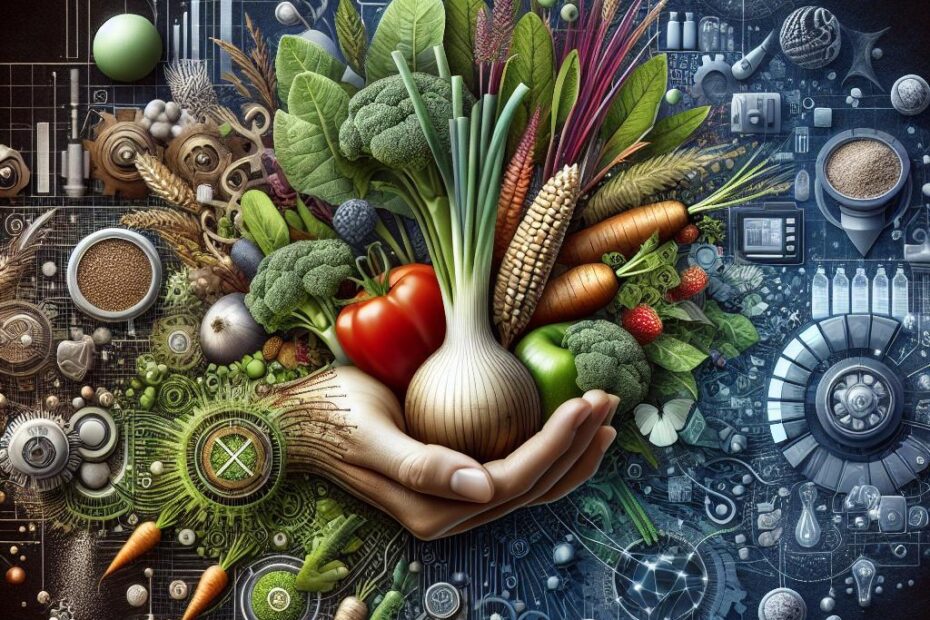Vegetables That Like Acidic Soil
Introduction
When it comes to gardening, one of the most important factors to consider is the pH level of the soil. While most vegetables thrive in neutral to slightly acidic soil, there are some that actually prefer a more acidic environment. These vegetables can benefit from soil with a pH level of around 5.5 to 6.5. In this article, we will explore some of the vegetables that like acidic soil and provide you with essential information on how to grow them successfully.
Benefits of Acidic Soil for Vegetables
Acidic soil can offer several benefits for certain vegetables, including:
-
Improved Nutrient Absorption: Acidic soil can help plants absorb essential nutrients such as iron, manganese, and phosphorus more efficiently.
-
Disease Prevention: Acidic soil can inhibit the growth of certain soil-borne diseases that thrive in neutral or alkaline soil.
-
Increased Flavor: Some vegetables grown in acidic soil may have enhanced flavor profiles, making them more enjoyable to eat.
-
Enhanced Growth: Vegetables that prefer acidic soil may experience faster growth rates and higher yields when grown in suitable conditions.
-
Pest Resistance: Acidic soil can discourage the presence of certain pests that prefer neutral or alkaline soil environments.
Vegetables That Like Acidic Soil
-
Potatoes:
Potatoes are a versatile crop that can thrive in acidic soil. They prefer a pH level of around 5 to 6.5 and require well-draining soil with adequate moisture. -
Blueberries:
Blueberries are well-known for their love of acidic soil, with a pH level of around 4 to 5 being ideal. They require plenty of organic matter and regular watering to thrive. -
Rhubarb:
Rhubarb is another vegetable that prefers acidic soil, with a pH level of 5.5 to 6.5 being optimal. It requires a sunny location with well-draining soil rich in organic matter. -
Radishes:
Radishes are quick-growing vegetables that can tolerate acidic soil with a pH level of around 5.8 to 6.8. They prefer loose, well-draining soil with consistent moisture. -
Carrots:
Carrots can grow well in slightly acidic soil with a pH level of 5.5 to 6.8. They require loose, well-draining soil that is free of rocks and debris.
Practical Tips for Growing Vegetables in Acidic Soil
Here are some practical tips for growing vegetables that like acidic soil:
-
Test Your Soil: Before planting, it’s essential to test the pH level of your soil using a soil testing kit. This will help you determine if your soil is suitable for growing acidic-loving vegetables.
-
Amend the Soil: If your soil is not acidic enough, you can amend it with materials such as sulfur, pine needles, or peat moss to lower the pH level.
-
Provide Adequate Drainage: Vegetables that like acidic soil typically do not thrive in waterlogged conditions. Ensure your soil drains well to prevent root rot.
-
Mulch Regularly: Mulching can help maintain soil acidity levels and regulate moisture, which is crucial for vegetables that prefer acidic soil.
Case Study: Growing Blueberries in Acidic Soil
One excellent example of growing vegetables in acidic soil is blueberries. Blueberries are known for their love of acidic soil, making them an ideal choice for gardeners looking to cultivate crops in such conditions.
A study conducted by the University of Maine found that blueberries grown in acidic soil with a pH level of around 4 to 5 produced higher yields and better quality fruit compared to those grown in neutral or alkaline soil. The study also concluded that blueberries in acidic soil had increased disease resistance and pest tolerance, resulting in overall healthier plants.
Personal Experience
As a gardener with acidic soil in my backyard, I have successfully grown a variety of vegetables that thrive in such conditions. Blueberries, in particular, have been a favorite crop of mine due to their vibrant colors, delicious taste, and ease of cultivation in acidic soil. By following proper soil amendments, regular watering, and mulching practices, I have been able to enjoy a bountiful harvest each year.
Conclusion
In conclusion, understanding which vegetables prefer acidic soil can help you maximize your gardening efforts and achieve successful yields. By providing the right pH level, drainage, and care, you can grow a variety of vegetables that thrive in acidic conditions. Whether you choose to grow blueberries, rhubarb, or potatoes, following proper gardening practices will ensure a fruitful and enjoyable experience. Happy gardening!
